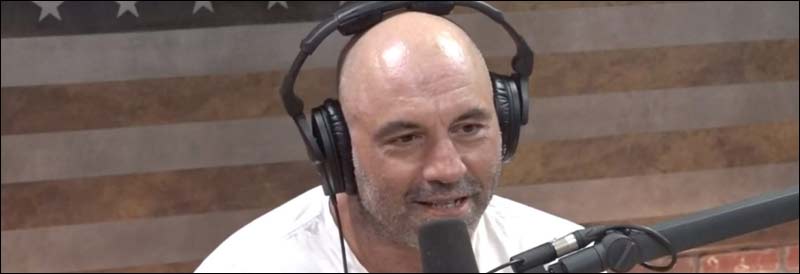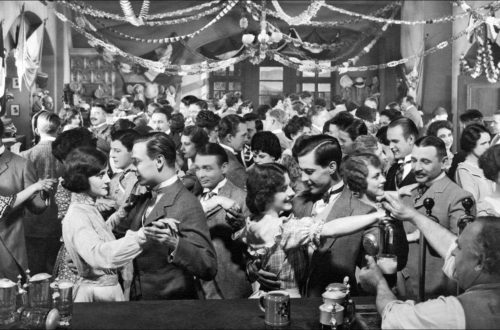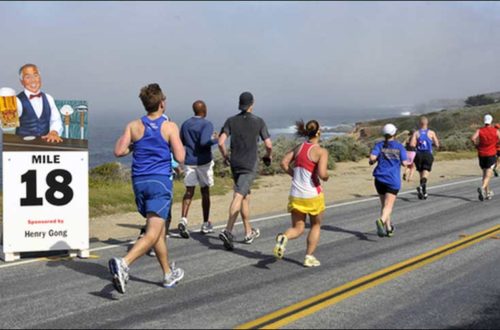Last night I was browsing the news when I came across the following article title and lede:
“WHY IS JOE ROGAN SO POPULAR?”
He understands men in America better than most people do. The rest of the country should start paying attention.
by Devin Gordon.
I had never heard of Joe Rogan — or maybe I had head of him second-hand somewhere? Others talking about him? But if Rogan “understands men in America better than most do,” maybe I should know more about him?
The clickbait intrigued me. I was game; I bit. I clicked on the link and read.
The fifth paragraph into Gordon’s long article I read the following:
Few men in America are as popular among American men as Joe Rogan. It’s a massive group congregating in plain sight, and it’s made up of people you know from high school, guys who work three cubicles down, who are still paying off student loans, who forward jealous-girlfriend memes, who spot you at the gym. Single guys. Married guys. White guys, black guys, Dominican guys. Two South Asian friends of mine swear by him. My college roommate. My little brother. Normal guys. American guys.
I was kind of stunned by that paragraph. I was pretty sure none of the “American men” I knew spent much of their time, energy, and energy listening to Joe Rogan podcasts. Maybe I am wrong?
It was just one more moment when I figured I was just plain old and out of touch with American pop culture. I figured author Devin Gordon was thirty years old and hailed from a much younger generation than me, and so that would explain the disconnect. Yes, Gordon is younger than me, but only by about a decade.
Maybe the problem is not that I am too old. Maybe the problem is that I am just out of touch. Should I be more “in touch”? Am I missing something by paying so little attention to popular culture?
I went to his website and Devin Gordon writes about Nikki Minaj, David Beckam, Justin Bieber, Colin Kaepernick and other pop culture figures. He writes often about professional sports for ESPN or GQ Magazine, it would seem. Is that what would lead him to Joe Rogan? I don’t pay attention to any of that. I have heard much about the singers JayZ and Drake second-hand, but I could pick neither of them out in a police lineup. I don’t know the names of any of their songs, nor would I recognize one on the radio. The same with all country Western singers. Or most actors and actresses and sports stars. Why should I care about the entertainment industry? Or about professional athletes?
I remember when I was a beginning teacher in 1994 and singer Kurt Cobain killed himself. I was surprised how many of my students, in a heavily immigrant downtown Los Angeles community, seemed like they were on the verge of suicide themselves when they heard the news. There seemed to be something in Cobain’s person and music that spoke to them, and his death affected them deeply. Cobain was the same age as me but I did not identify with him or pay much attention to his passing in 1994. I was familiar with his music, but it seemed rock and roll singers are always overdosing, killing themselves, or some such combination: Cobain was hardly the first, and he wasn’t the last. In contrast, my brother was struck hard by Cobain’s suicide at the time. Why was I not? Was I out of touch with the popular zeitgeist which Cobain represented in the early 1990s? The grunge movement? Tone deaf to what he stood for?
Probably.
Similarly, I was surprised how hard many seemed to take Anthony Bourdain’s sucide last year, or Robin Williams before that. Or the death of Amy Winehouse. Is it the nature of popular culture in America that we freight these celebrities with our own emotional baggage? After so much media coverage do we feel like we actually have personal relationships with them? So we treat their deaths as if they were our own family?
I don’t know.
Gordon writes about how Joe Rogan’s has an interview last fall with Elon Musk which has been viewed more than 24 million times on YouTube; his YouTube channel, PowerfulJRE, chimes in with 6 million subscribers. The whole point of Gordon’s article is that American men are having a complicated conversation through Rogan’s hugely popular podcast about masculinity and the proper way for men to live. Important discussions are taking place there, Gordon claims. From mushroom coffee to heath supplements to cannabis to the #metoo movement to political correctness and artificial intelligence, just to name a few, according to Gordon’s article.
And I am listening to none of them.
Am I missing out?
Was Elon Musk and Joe Rogan smoking a joint and shooting the bull with each other a cultural landmark of the early 21st century? An important moment in American intellectual life? A Youtube video with 24 million views?!?
I went and watched some of that video. I could only watch a few minutes here and there. It was two hours and thirty seven minutes long. Yikes!
Podcasts?
My brother swears by them. He downloads and listens to them on his long commute to and from work. I am sure the hours of podcasts add up day after day for him in the car. He listens to political podcasts, but I could never do that. 90 to 120 seconds of someone whining about Donald Trump or (worse) praising him, and I am turning the channel. Forty five minutes to an hour of listening to politics in a podcast? I think not. But Chadd, a former student of mine, claimed podcasts were the future of America’s sociopolitical discussions. Podcasts were where it was at, he told me; Chadd was super-excited about them. I think he was going to try and make a career in them. Colin, similarly around thirty years old, tried to steer me into this “great podcast” or that. I trust Colin to distinguish clearly the wheat from the chaff, but still I mostly refrained.
I stay with books.
Joe Rogan talking with thousands of guests over years of episodes? How is this better than the Phil Donohue show of yore? Is Joe Rogan with his podcast like the Oprah Winfrey from her show, except for men?
Off the cuff interviews? Two guys just talking?
I prefer an editor. I prefer two or three drafts, and then a finished product. I prefer books. They have a long and successful pedigree. There is nothing wrong, in my opinion, with them.
I am approaching the end of having listened to astronaut Scott Kelly narrate his autobiography, “Endurance.” I listened to the audiobook while driving in my car, similar to how my brother does with podcasts. It took thirteen hours of listening to Kelly narrate his life story to reach the end. It was a serious investment of time. Like most such books, there were parts where my interest waned, but overall I enjoyed the book. It was well worth my thirteen hours of time and attention. I was pretty sure it was going to be worth it when I bought it. I will actively seek out similar such books. What should I read next? (FYI: That next book is “Under the Banner of Heaven: A Story of Violent Faith” by Jon Krakauer.)
But I probably won’t wade into podcasts. How can I be sure of the quality? Time is limited and precious. I am picky.
I think long and hard before I invest thirteen hours into anything. I can pick books successfully, more or less. I do pick some losers, but I can judge books pretty well. I have spent a lifetime doing so. I am willing to spend good money on books. But podcasts for free? Joe Rogan talking? Not so much.
I asked my brother this:
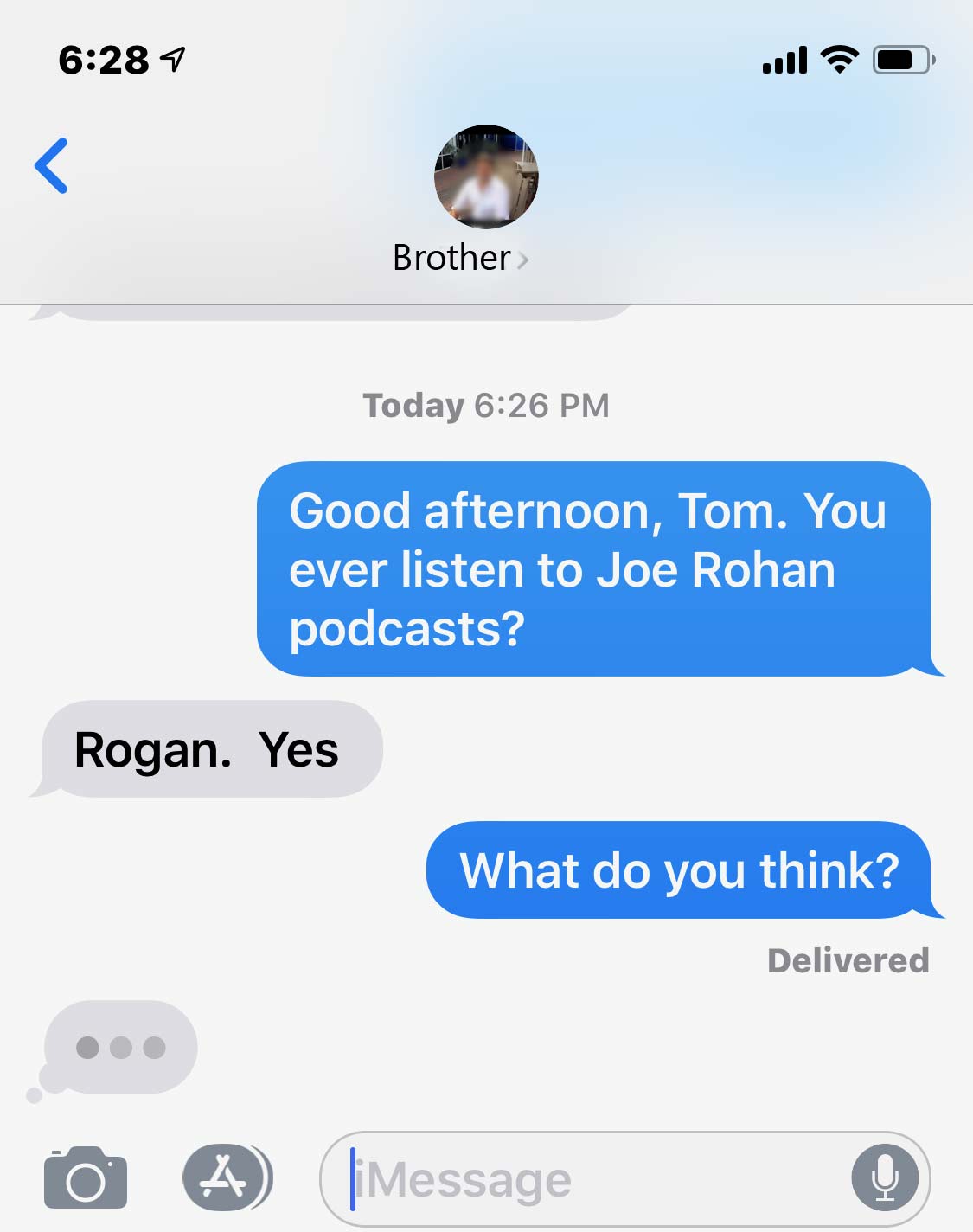
And this is how he responded:

Interesting. I put serious weight on my brother’s considered opinion. Podcasts work well for him.
I don’t know.
Around 49 years of age a small but important shift took place for me. I stopped looking behind myself, both in my own life and in the life of my country, and started looking forward. I did not care about mistakes made in my twenties or thirties. They were far away now. I no longer contemplate whether I chose the right career or not. It is too late to change now; I am approaching retirement. My mother-in-law is dying of cancer, and my father is 80 years old and struggling. I am watching his generation start to pass from the scene. I am 52 years old. I am not going to change. I am what I am. I started looking more inward into myself and less outside to others. What are men in America talking about? I am slightly interested, but not hugely so.
So I guess Joe Rogan and podcasts will remain outside my ken.
It is not just Rogan and podcasts. I put 105.5 fm on the radio occasionally for my daughters when we are in the car. That radio station plays the music that is popular with teenagers. My daughters seem to have all the songs memorized. It sounds like an unending stream of undifferentiated noise. Unremarkable. I fail to see the appeal.
Maybe I am out of touch with the American cultural zeitgeist. Most likely I am, and probably always was.
Is that a strength? A weakness? Both, most likely?
I am what I am. My strengths and my weaknesses — I know them better than anyone else. And I am comfortable in my own skin. At peace. Much more so than when I was 30 or 40 years of age.
And that is enough.
That is plenty.
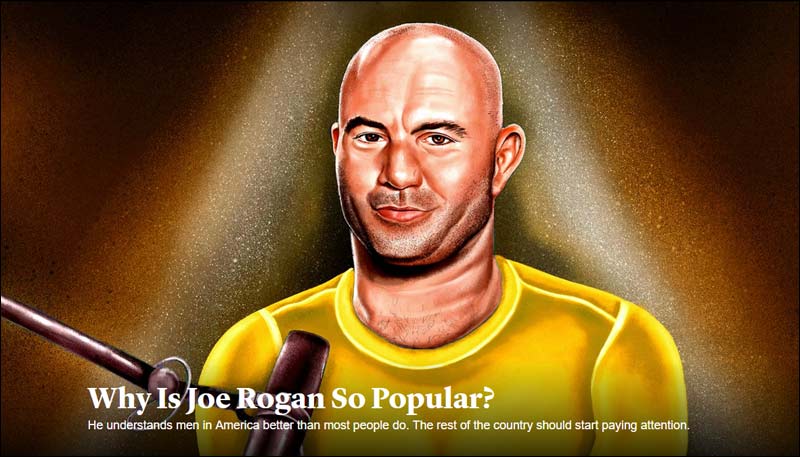
JOE ROGAN AND INFORMATION GLUT ON THE INTERNET:
“I’m glad, though, that the men of America have Joe Rogan to motivate and inspire and educate them in limitless ways, including how to recognize a moron. Whatever gets the job done. It might unsettle some of us that we must rely on his fans to separate the good stuff from the bad, but that’s the hard work of being a responsible adult in the modern era—knowing what you should consume and what you shouldn’t.”
Devin Gordon
“Why Smart People Should Read Fewer Books”
by Nick Wignall
A different, yet similar, view from my own.
